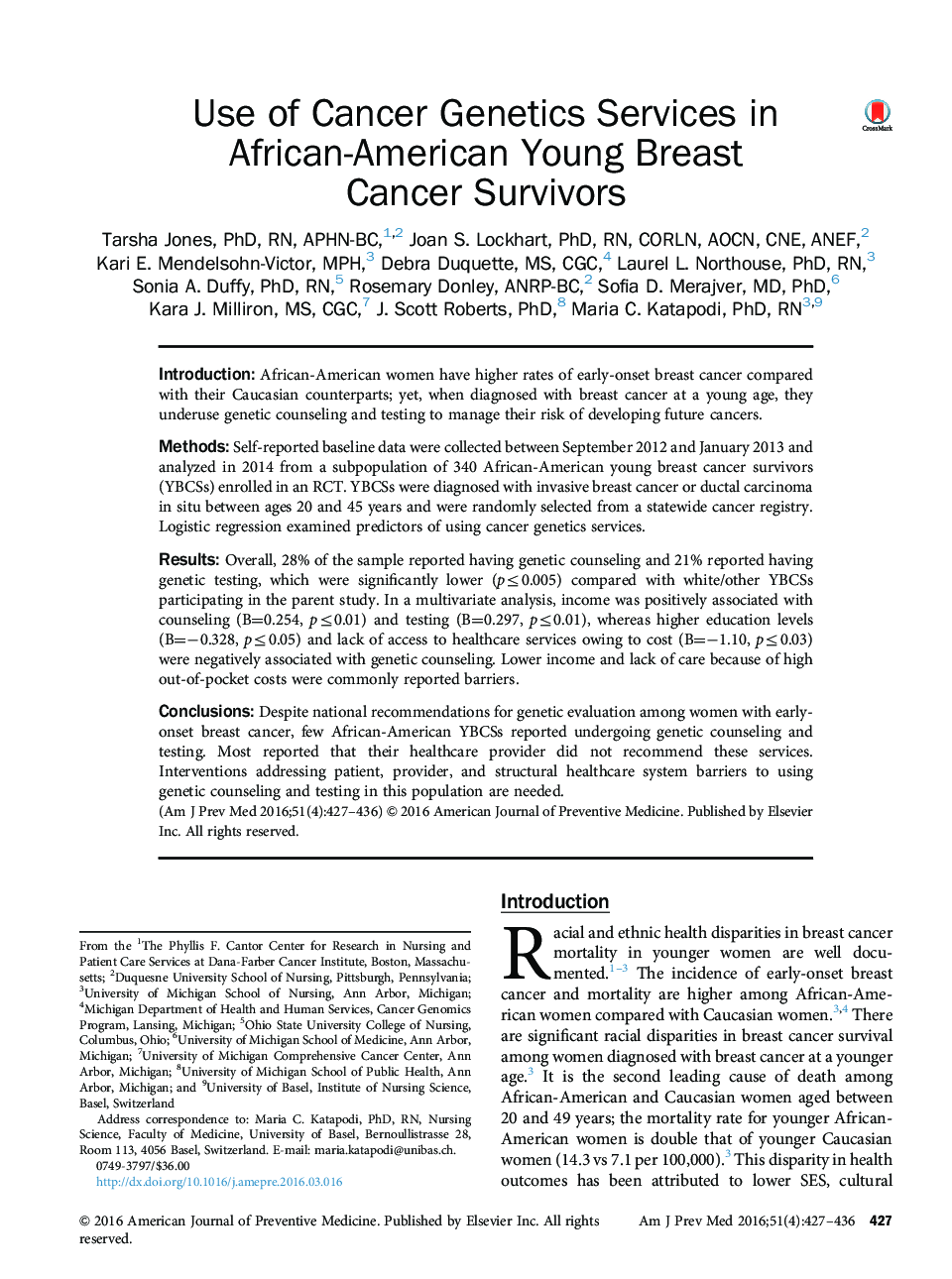| Article ID | Journal | Published Year | Pages | File Type |
|---|---|---|---|---|
| 4191836 | American Journal of Preventive Medicine | 2016 | 10 Pages |
IntroductionAfrican-American women have higher rates of early-onset breast cancer compared with their Caucasian counterparts; yet, when diagnosed with breast cancer at a young age, they underuse genetic counseling and testing to manage their risk of developing future cancers.MethodsSelf-reported baseline data were collected between September 2012 and January 2013 and analyzed in 2014 from a subpopulation of 340 African-American young breast cancer survivors (YBCSs) enrolled in an RCT. YBCSs were diagnosed with invasive breast cancer or ductal carcinoma in situ between ages 20 and 45 years and were randomly selected from a statewide cancer registry. Logistic regression examined predictors of using cancer genetics services.ResultsOverall, 28% of the sample reported having genetic counseling and 21% reported having genetic testing, which were significantly lower (p≤0.005) compared with white/other YBCSs participating in the parent study. In a multivariate analysis, income was positively associated with counseling (B=0.254, p≤0.01) and testing (B=0.297, p≤0.01), whereas higher education levels (B=−0.328, p≤0.05) and lack of access to healthcare services owing to cost (B=−1.10, p≤0.03) were negatively associated with genetic counseling. Lower income and lack of care because of high out-of-pocket costs were commonly reported barriers.ConclusionsDespite national recommendations for genetic evaluation among women with early-onset breast cancer, few African-American YBCSs reported undergoing genetic counseling and testing. Most reported that their healthcare provider did not recommend these services. Interventions addressing patient, provider, and structural healthcare system barriers to using genetic counseling and testing in this population are needed.
